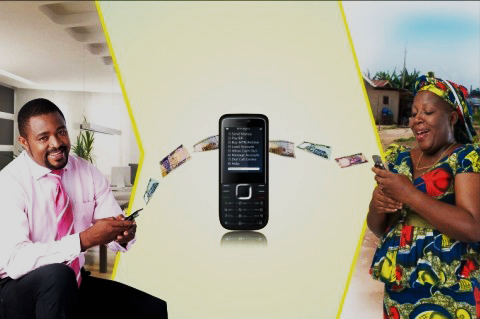
Who benefits from mobile money regulations?
There are as many bank accounts in the world as there are adults, and the World Bank estimates that 150 million new consumers join the market for financial services every year, yet over half the adults in the world are ‘unbanked.’
About one billion people in developing countries, including Ghana, do not have bank accounts, but many own a cellphone, fuelling a race to turn these phones into bank books for the 'unbanked' to store cash, manage their accounts, make purchases and send and receive money - part of so-called 'financial inclusion'.
This fast growing mobile phone penetration also brings with it increasingly sophisticated mobile devices, which outpace ordinary computers.
Ghana's mobile phone penetration rate has risen to 59.7 per cent after the voice subscriber base climbed to over 31 million.
MTN, which controls 50 per cent of the market share, has invested more than US$2.4 billion in network expansion and systems improvements projects since 2006.
MTN officials said the investment over the years had resulted in increased network capacity, improved data speeds and a reduction in overall network congestion.
“The company also plans to invest another US$103 million in network improvement and expansion in 2015, MTN's corporate services executive,” Mrs Cynthia Lumor said.
"Over the medium term, our priorities are driving growth beyond voice, creating a distinct customer experience while ensuring that we optimise costs," she told journalists.
MTN’s foray and investment
Beyond voice and data, the telecoms giant has since in July 2009 increased the pace of its technology to expand the scope of financial services, called MTN mobile money, which is a fast, convenient, secure and affordable way of performing cash transactions using a mobile phone.
The service has some additional features such as reloading MTN airtime and the ability and the flexibility to pay for utility bills, goods and services with your mobile phone.
Unquestionably, the service has helped people living in urban areas to transfer funds to friends and families with ease within and outside their communities. As it is in Ghana, most city dwellers often send money to members of their extended family living in rural areas.
Analysts say Mobile money presents certain advantages for Ghanaians without access to banks. It reduces the transaction costs of financial services for the poor, especially those in rural areas where financial services seldom exist.
Mobile money saves the cost of travel and time spent visiting the nearest town to access financial services.
Despite the increasing opportunity for expansion of financial access, there are heightening calls for regulations of the sector.
But a Financial and Banking expert has debunked assertions that the now popular mobile money system is operating without legal backing.
Nana Otu Acheampong says there are laws, including the Ghana Payment Systems Act and sections of the Bank of Ghana Act, which legalise the operation of the mobile money.
His comments are in reaction to concerns being raised by some Members of Parliament over the security and safeguards within the operations of the mobile money system.
Beneath the call for regulations
But beneath the call for regulations lies the commercial banks lobby. Some of the banks claim their core business is being taking away from them by the telecom companies, thereby eroding their profits.
That is because since 2013, mobile money has gained substantial increase in the value of transactions from GH¢2.4 billion in 2013 to about GH¢11.6 billion in 2014.
The Managing Director of CAL Bank, Mr Frank Adu Junior, was the first to appeal to the Bank of Ghana to immediately design clear guidelines to regulate activities of telcos engaged in financial activities.
According to him, a clear policy direction stating the extent to which telcos can roll out financial products will aid customers and properly enhance the drive for financial inclusion.
“I am calling for a policy direction, that’s all. I think that too many things are left to develop in this country without dimension. Look, today, one of them is advertising a loan product,” he said.
“It is financial inclusion, it allows you to borrow money from a mobile company, but it also says that I will charge up to 20 per cent commission on the amount that you borrow for a month; that in financial terms is a 240 per cent per annum interest rate on borrowing. You think that should be allowed to happen?” he queried.
Mr Adu who was unhappy about the development warned that the financial sector could face the same debacle that hit the micro finance sector recently due to improper supervision.
“You cannot sit there and let that happen. The same way we sat there and let the micro finance companies evolved without restrictions under the same ambit of financial inclusion. Financial inclusion, we all go for it, but it must controlled and be in the policy frame work,” he stressed.
BoG responds
The Central Bank, which is the regulator, has responded swiftly by hinting of plans to review its regulations on mobile money transactions in the country by July this year.
According to the Central Bank, this is to allow it address the numerous concerns raised over the implementation of the current Electronic Money Issues (EMI) Guidelines designed specifically for mobile money and all types of electronic money.
The Head of Payment Systems at the Bank of Ghana, Dr Settor Amediku, spoke at a session during this year’s African Mobile and ICT Expo (MOBEX) and justified the review and called for more stakeholder engagements during the process
